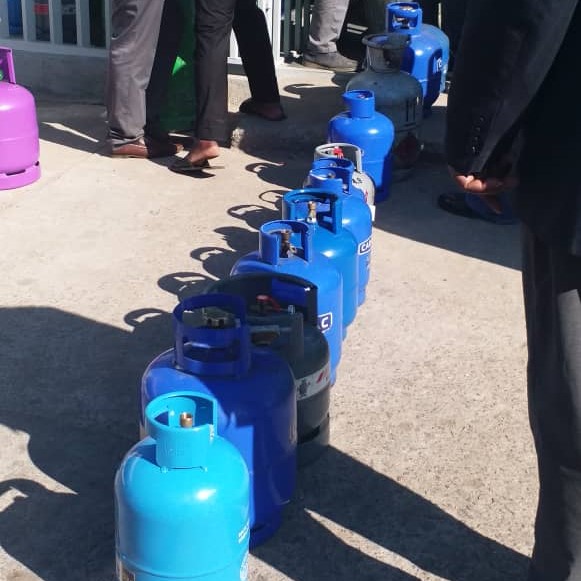Bulawayo residents have expressed support for the government’s decision to exempt Liquefied Petroleum Gas (LPG) from Value Added Tax (VAT), viewing it as a move that will reduce costs and alleviate hardships caused by persistent power outages.
The exemption, effective January 1, 2025, aims to promote alternative energy use during prolonged load shedding, which continues to affect households nationwide.
Presenting the 2025 National Budget, the Minister of Finance Professor Mthuli Ncube acknowledged the country’s electricity supply deficit, which has contributed to persistent load shedding.
He said the region is currently facing a deficit in electricity supply, which has led to prolonged load shedding.
“In that regard, Liquefied Petroleum Gas (LPG) has served as an Alternative energy source, especially for cooking and heating During power outages. In addition, there has been a transition from traditional fuels Such as firewood or charcoal, which are associated with indoor air pollution, deforestation and environmental degradation,” he said.
Bulawayo United Residents Association (BURA) leader, Winos Dube, welcomed the move, calling it a much-needed relief for residents affected by the power crisis.
“The exemption will significantly benefit us, the general population, as residents, because we are grappling with the crisis of load shedding. People now rely heavily on gas, so if the government exempts VAT or duty to lower its price, we wholeheartedly welcome it. This will provide relief, as many people are now highly dependent on gas due to the inconsistent and limited availability of electricity,” he said.
Another resident, Mr Tshuma, echoed these sentiments, saying the exemption promotes energy alternatives and reduces reliance on the unreliable electricity supply.
In their analysis of the proposed budget, the Zimbabwe Coalition on Debt and Development (ZIMCODD) said the tax measure is a positive policy development that seeks to address the severe electricity shortages experienced in the economy due to low generation.
“This is affecting industry and households as they face prolonged hours of blackouts. Electricity is a critical input; its shortage is an albatross to domestic production. This situation sustains Inflationary pressures in the economy, eroding Disposable incomes. By deferring VAT, increased energy investments and importation of enabling equipment are likely. This move can also catalyse the energy Sector’s greening and help achieve climate change goals,” they said.

